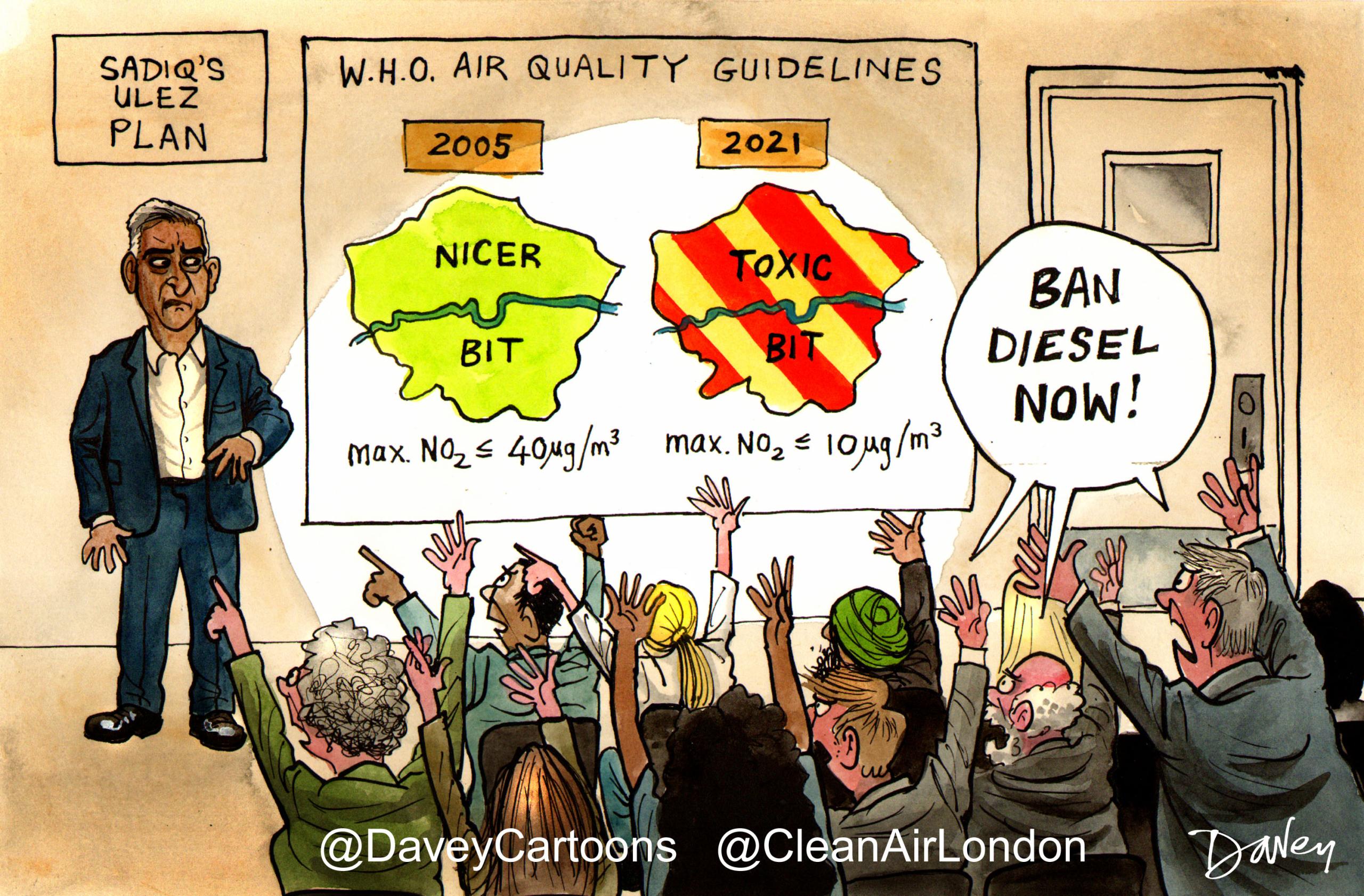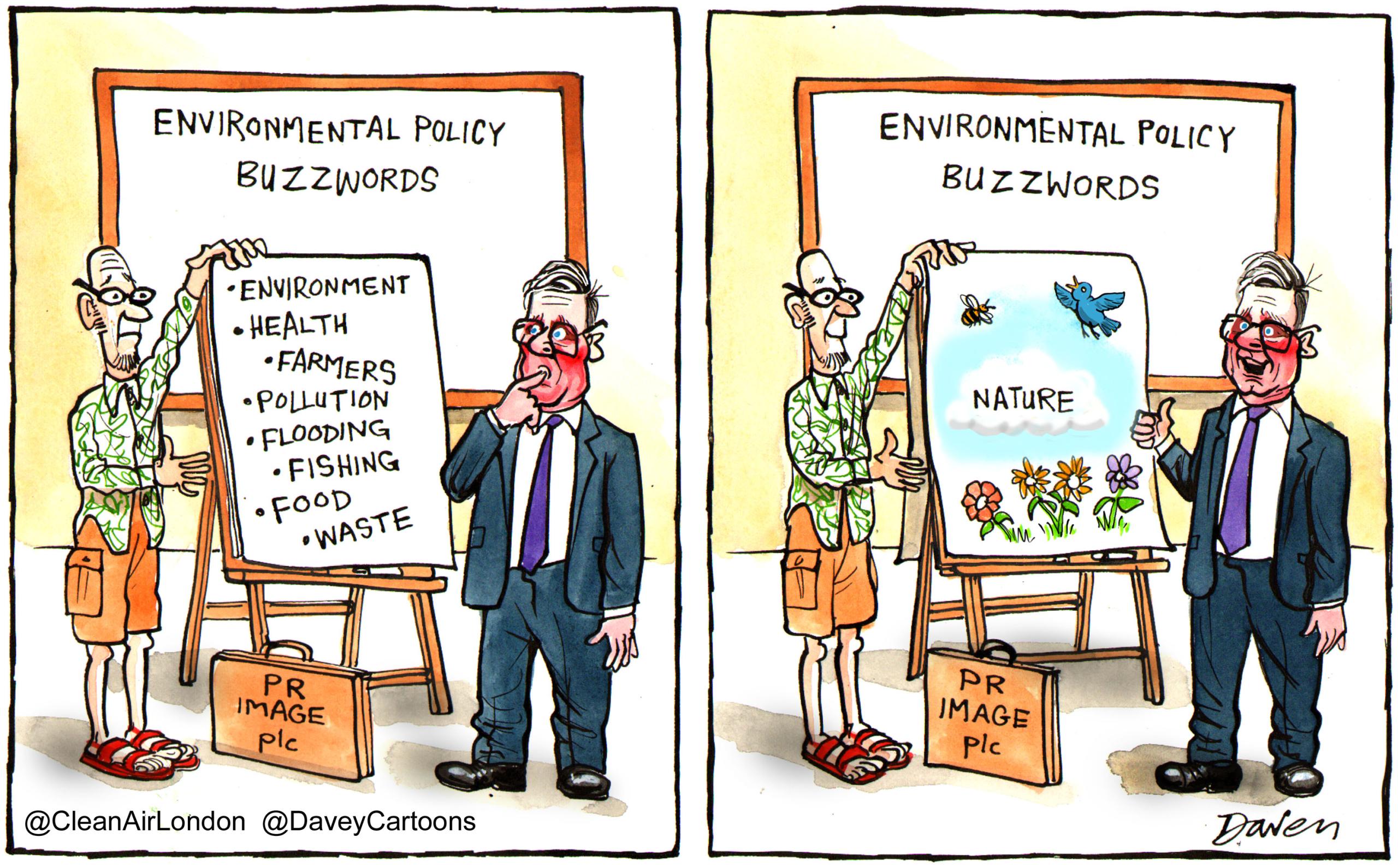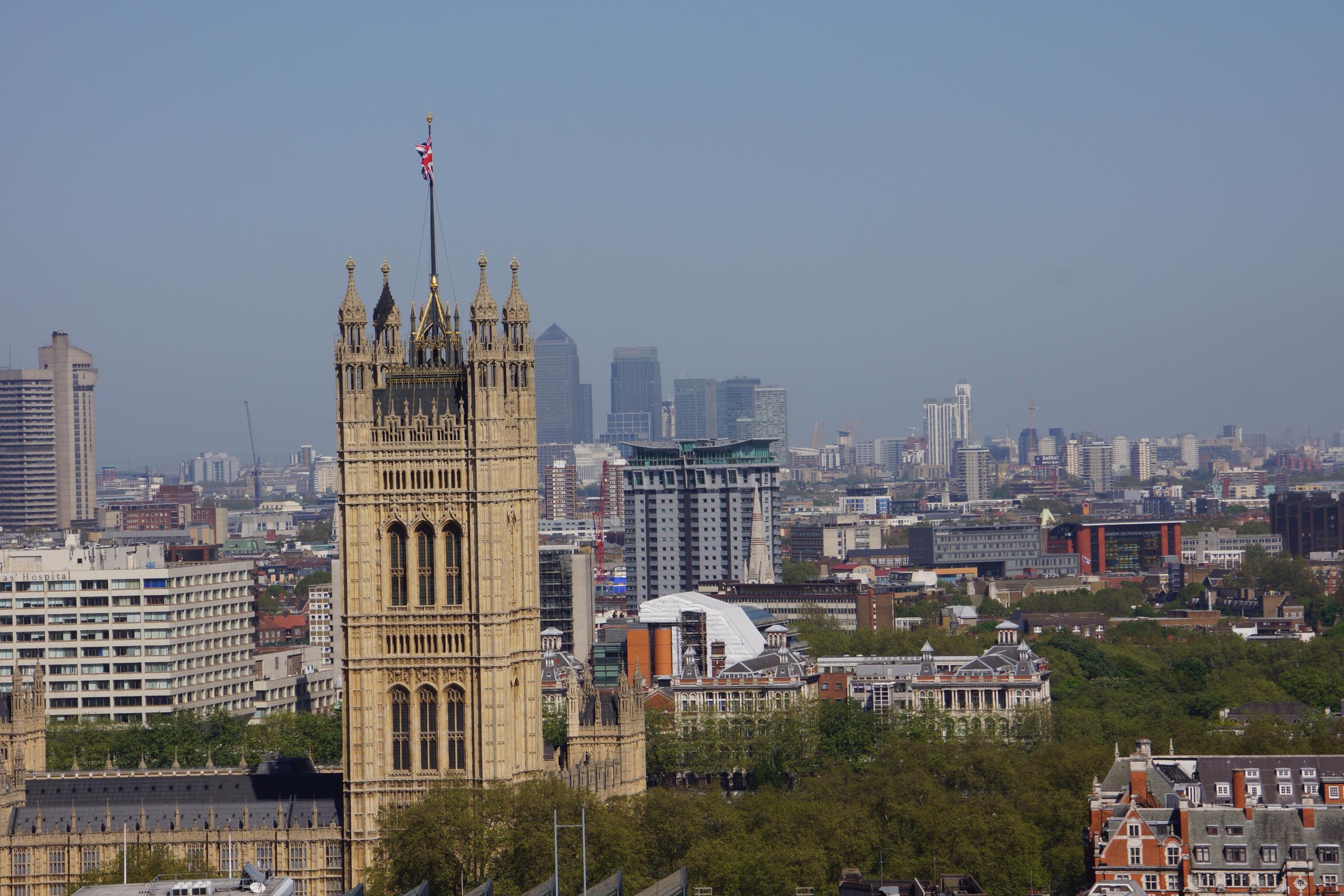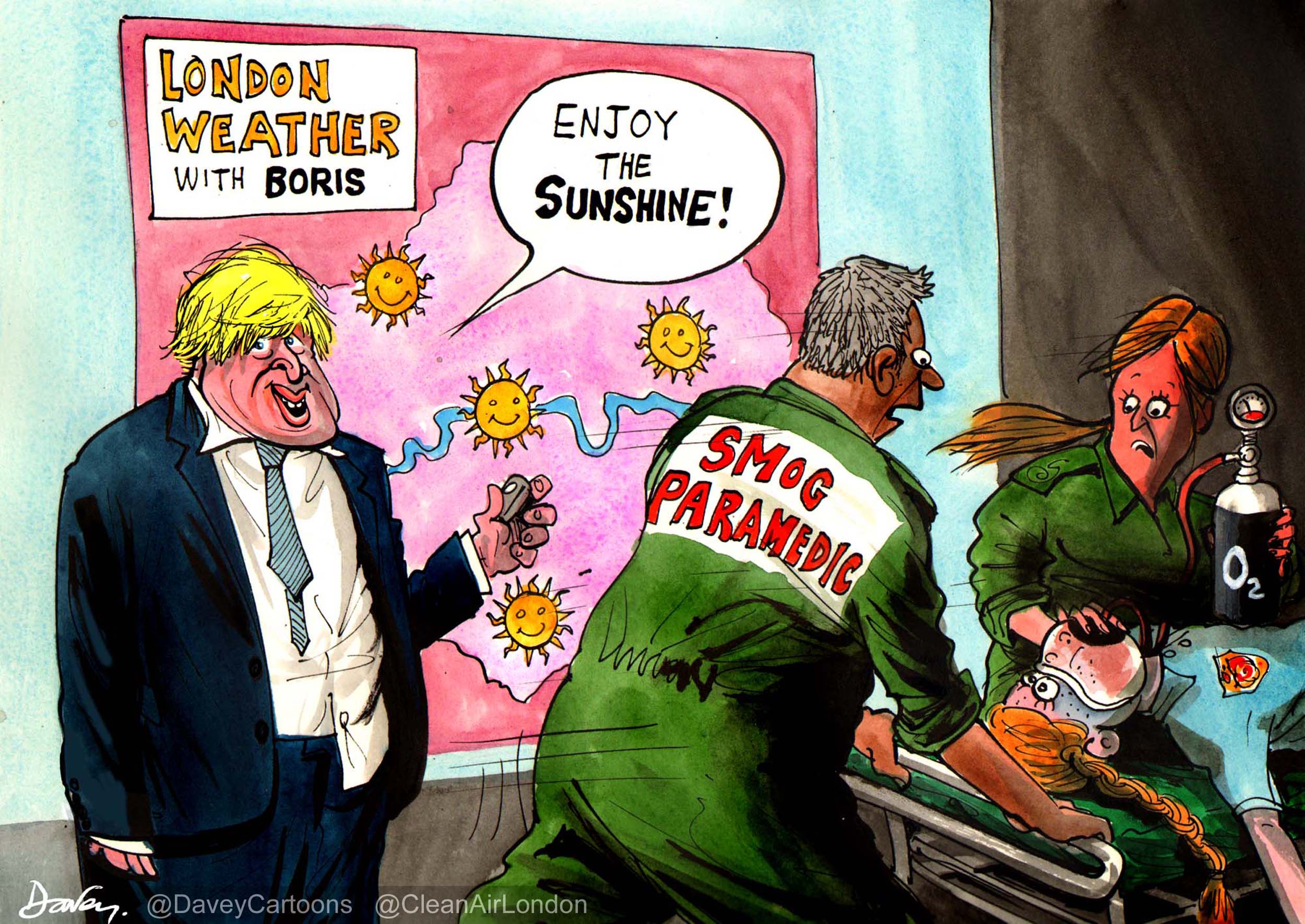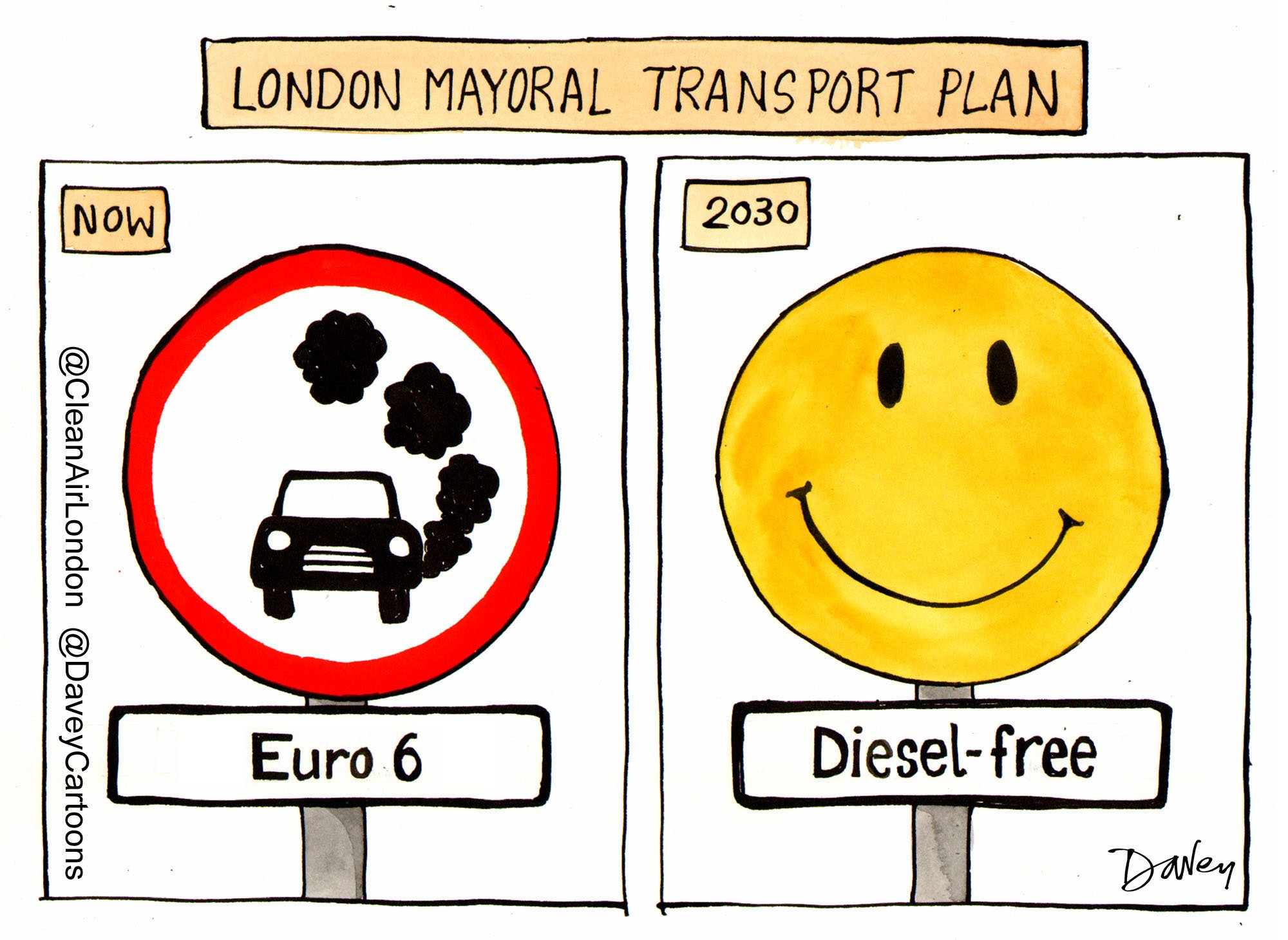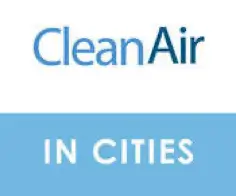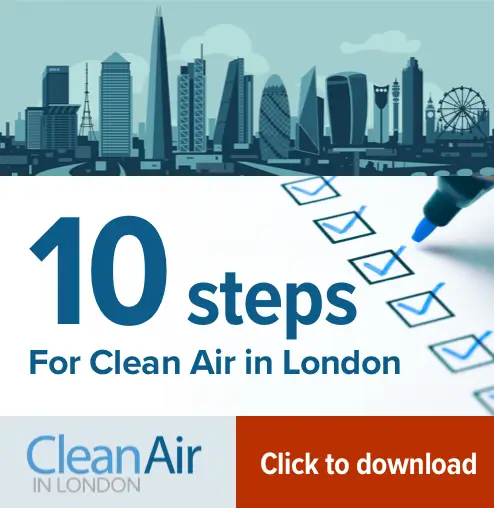Government caves in and releases ministerial briefing papers hours before London elections
It has taken over three years for Simon Birkett (Founder and Director of Clean Air in London), backed by Friends of the Earth’s Rights and Justice Centre and assisted by top barristers Gerry Facenna and Laura Elizabeth John of Monckton Chambers, to win this legal fight
Ministerial papers show the Labour Government wanted to comply with air pollution laws and was looking closely at its Powers of Direction to stop Boris Johnson taking backward steps. It was looking particularly at forcing Mayor Johnson to stop or mitigate the effects of removing the western extension of the congestion charging zone
After a legal battle lasting more than three years, Simon Birkett (as Founder and Director of Clean Air in London) has succeeded in forcing the Government to release – just hours before the London Mayoral and London Assembly elections – a fourth tranche of information that discloses finally all but three sentences of detailed ministerial briefing papers. The First-tier Tribunal approved a Consent Order between the parties on Tuesday 1 May.
These papers relate to a meeting that took place on 22 January 2009 between Lord Hunt, Air Quality Minister of the Labour Government, and Boris Johnson to discuss air pollution in London. Simon Birkett, backed by Friends of the Earth’s Rights and Justice Centre and assisted by top barristers Gerry Facenna and Laura Elizabeth John of Monckton Chambers, has fought for access to these papers under environmental information laws. The case involved an appeal to the Court of Appeal on an important technical point which set valuable precedents for future requesters across the UK.
The fourth and final tranche of information released by the Department of Environment Food and Rural Affairs (Defra) shows:
- Its release in 2009 would have contributed significantly to public understanding on an important matter of environmental protection i.e. the Mayor’s planned removal of the western extension of the congestion charging zone (WEZ).
- The Labour Government was looking closely at its ability to use Powers of Direction under the Air Quality Standards Regulations 2007 to force Boris Johnson, as Mayor of London, to stop his planned removal of the WEZ or mitigate the impacts of doing so. We now know that Powers of Direction to meet the UK’s national objectives [for air quality] had been applied once in the past to Birmingham City Council which refused to report to central government on local air quality and the Government’s considerations about using them again.
- The legal duties Boris Johnson should have complied with when developing his Air Quality Strategy that was finally published in December 2010.
Note: The UK’s reapplication on 11 May 2010 for a time extension until June 2011 to comply with legal standards for dangerous airborne particles (PM10) assumed that Phase 3 of the London low emission zone would be postponed until 2012 but not that the WEZ would be removed.
Simon Birkett’s legal team at Friends of the Earth’s Rights and Justice Centre told Defra on 5 April:
- “Having now seen the material previously withheld, we wish to highlight our very real doubt that the information could ever properly have been described as being subject to litigation proceedings in relation to [infraction action by the European Commission].”
Note: Under the Environmental Information Regulations (EIR), all information must be released unless it is the subject of an exception in which case a public interest test applies.
- The failure by Defra to disclose the material in timely fashion has directly affected Simon Birkett’s ability to press for action to address the significant air quality problems in London.
After appealing a technical point, Simon Birkett lost in the Court of Appeal, but succeeded in establishing important new powers under UK law for requesters. These included:
- The Government conceding before the Upper Tribunal that the Information Commissioner’s Office (ICO) and First-tier Tribunal can use their case-management directions or decisions to limit the right of public authorities to ‘rely as of right’ on a different exception or exceptions for refusing to disclose environmental information in proceedings before the Information Commissioner and/or First-tier Tribunal.
- Confirming the need for public authorities to reply before mandatory deadlines under the EIR or face the failure to do so being declared unlawful.
- A minority opinion, by Lord Justice Carnwath – now a Supreme Court Judge – that included:
“I feel some regret that neither party, nor the Information Commissioner, felt able to present positive submissions in favour of a ‘middle way’. There would have been attractions in an alternative approach, which could have reconciled the need for urgency, implicit in the CJEU case-law, with the need for flexibility in the operation of the scheme. However, in the absence of such submissions I do not think it is open to the court to attempt to devise such a solution”
The ICO had chosen not to participate in the appeal. Lord Justice Carnwath’s comment suggests that future requestors may achieve stronger rights in the UK under the EIR.
Quotes
Simon Birkett, Founder and Director of Clean Air in London, said:
“It is astonishing that Defra has refused for more than three years to release this information, no doubt at immense cost.
“Releasing the information in a timely manner in early 2009 would have helped Londoners understand the Labour Government: wanted to comply with air pollution laws; and was looking seriously at its legal powers to stop Boris Johnson taking backward steps on air quality measures such as the western extension of the congestion charging scheme. ‘Access to environmental information laws’ are powerful, particularly when a request relates to harmful emissions to air.
“I would like to thank leading barristers, Gerry Facenna and Laura Elizabeth John of Monckton Chambers and Gita Parihar and Laura Gyte of Friends of the Earth’s Rights and Justice Centre all of whom provided pro bono advice and without whom none of this information would ever have been released. They have been fabulous.”
Timeline
2009
22 January Birkett requests information relating to discussions between the previous Government and the Mayor of London on matters of air pollution and the UK’s compliance with European Union air quality laws
1 April Defra refuses disclosure on grounds information is ‘internal communications’
1 May Birkett requests ‘Internal review’ by Defra
15 September Defra refuses disclosure on grounds information is ‘internal communications’
3 October Birkett complains to the Information Commissioner
2 November Information Commissioner orders Defra to release all information requested. Defra complains the Information Commissioner did not wait for its response to the complaint, but the Information Commissioner was not obliged to do so
1 December Defra appeals to First-tier Tribunal seeking to rely on the new exceptions of ‘legal advice privilege’ and ‘litigation privilege’ to withhold the information
24 December Defra releases first tranche of information
2010
11 March Defra releases second tranche of information
8 April Defra release third tranche of information
11 May First-tier Tribunal hearing. Tribunal refuses to allow new exceptions and ‘stays’ the case pending any appeal Tribunal concluded, before the main hearing got underway, that:
“There is no obligation on the Tribunal to consider any new exception relied upon by a public authority that had not previously been relied upon; exceptions or exemptions raised for the first time before the Tribunal should only be considered if there is a reasonable justification.”
Defra barrister admits in Court the decision means ‘it does not have much of an appeal left’
15 July Defra appeals to Upper Tribunal
2011
12 and 13 January Upper Tribunal hearing
26 January Upper Tribunal judgment
28 February Birkett applies for permission to appeal to the Court of Appeal
28 and 29 November Court of Appeal hearing
21 December Court of Appeal judgment
2012
26 March Defra releases fourth tranche of information redacting just three sentences
1 May Consent Order signed by First-tier Tribunal
The case had been referred back to the First-tier Tribunal to be heard in June 2012.

